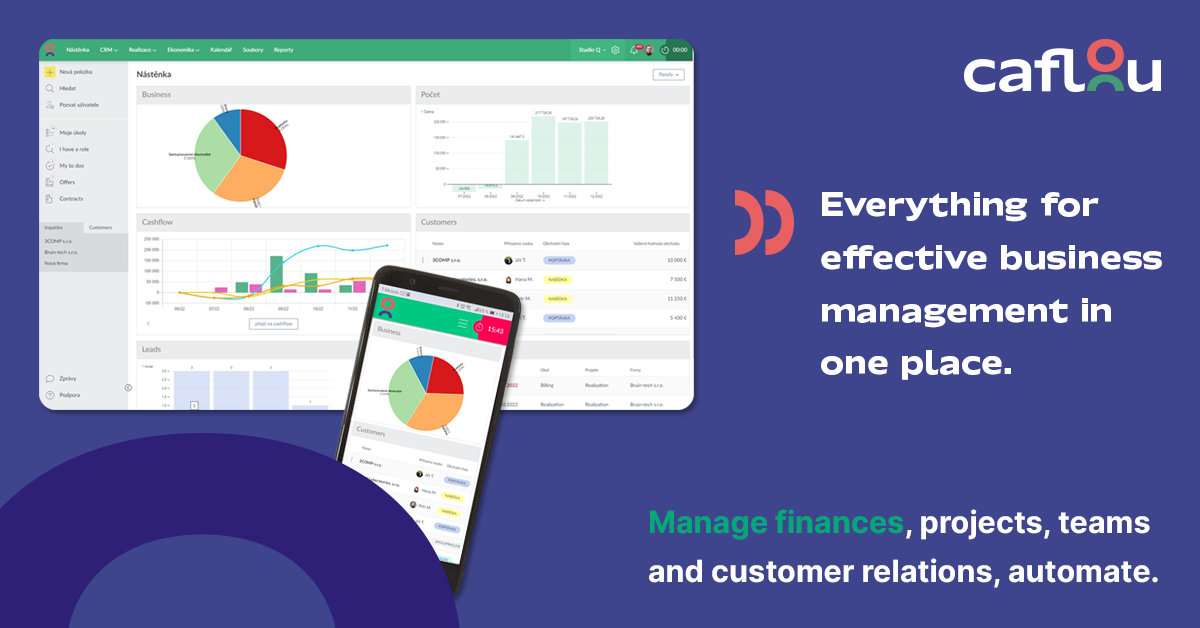
Irrespective of the size of your organization, managing your business can be a stressful and demanding activity. This is particularly true if you’re trying to do it all by yourself, without relying on the right management tools that can make your life much easier.
It’s no secret that small business owners often work long hours and put in tremendous effort to keep their businesses running smoothly. Coordinating and organizing day-to-day operations, leading teams, planning projects, managing cash flows, staffing, allocating tasks and resources – the list goes on and on. On top of all that, you need to market your products and services and communicate with customers.

So how can you lighten the load and free up time for more important tasks? The answer lies in implementing the right technology. McKinsey & Company’s 2020 global survey found that 66% of organizations across various industries either were piloting or had already adopted automation of at least one of their business processes.
To take advantage of the latest technology, it’s important to know the viable options and their major capabilities. In this article, we’ve compiled a list of ten essential business management tools that can streamline your operations and boost your efficiency. We’ll also discuss the pros and cons of using individual tools versus an all-in-one platform like Caflou, which combines multiple business management functions in one place.
What is business management software?
Business management software is an application that helps organizations improve their processes by automating routine tasks and functions. These tools free up company owners and managers from time-consuming, low-value activities. They enhance various aspects of business operations, from time tracking to managing workflows, customer relations, invoicing, and reporting.
Benefits of implementing management tools for small businesses
Modern management tools bring multiple advantages to small businesses:
- Time savings: Dedicated software allows you to focus on tasks directly connected to driving your business forward.
- Cost savings: Management tools can save you money in multiple ways, such as improving customer service and retention through CRM tools, identifying profitable investments with cashflow management solutions, avoiding costly errors with document management tools, and increasing productivity with scheduling and time tracking solutions.
- Adaptability to new business trends: Digital management tools are in line with limited in-person interactions and remote work. They help businesses address health concerns and maintain regulatory compliance.
Now let’s take a closer look at the essential management tools you can easily adopt in your operations.
Top 10 management tools for small businesses
1. Project Management Tools
Project management software is a great option if you’re juggling multiple tasks at a time. These tools can automatically generate and send reminders for upcoming tasks and events, keeping everyone updated on the project agenda. Trello is our top favorite in this category. This user-friendly tool improves team collaboration and efficiency by providing boards, lists, and cards. Trello enables clear visualization of project organization, task assigning, and budget planning using customizable templates. It ensures transparent workflows across the company and easy progress tracking. Asana and Basecamp are other examples of project management tools you may also want to look at.
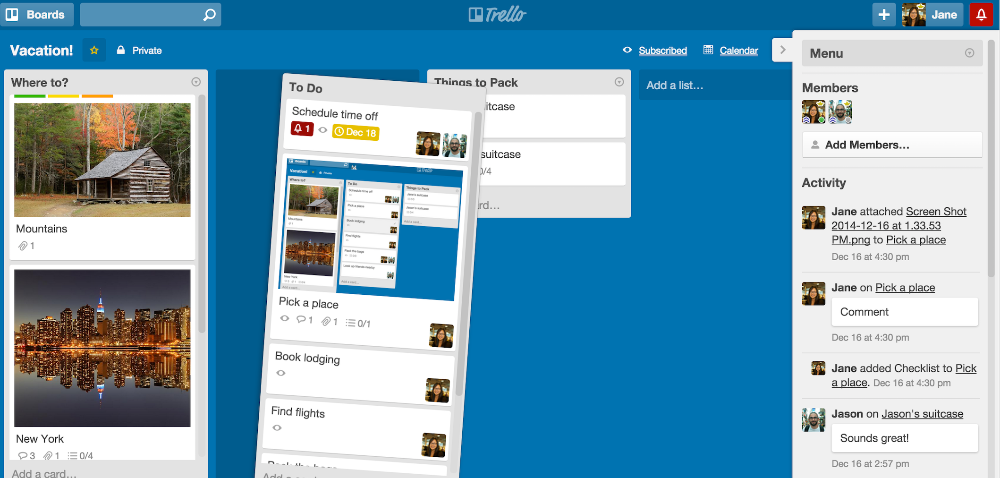
2. CRM Software
Customer relationship management is an important business tool that provides small businesses with a central hub to manage and measure performance at all touchpoints of the customer journey. Pipedrive is a deal-driven CRM tool with an intuitive interface and call and email synchronization. This easy-to-use and attractive option for small businesses comes with a mobile application and readily integrates with other solutions. Pipelinecrm and Salesforce are other viable options in this category.
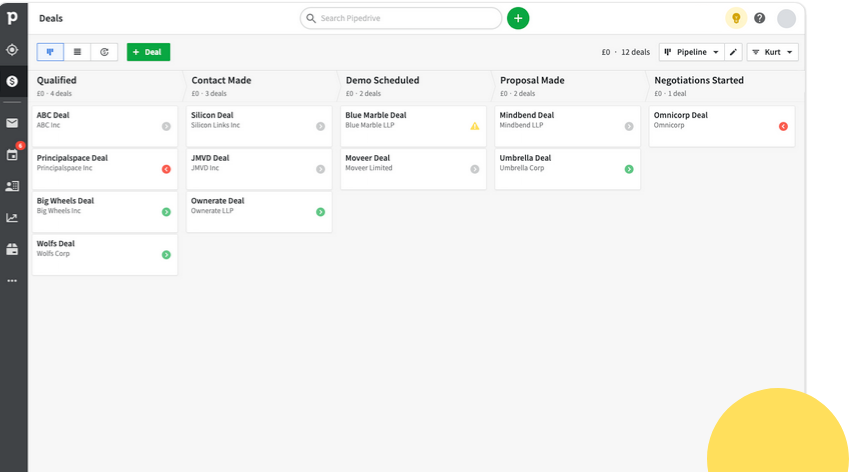
3. Workplace Communication Software
As your business grows, you need modern digital communication tools to enable your team to stay in touch through chatting and file sharing. Microsoft Teams is a great platform that connects coworkers. Along with its primary real-time video conversations, it offers data and screen sharing functionalities and allows great customization. Google Meet and Zoom are video conferencing solutions that also come with a promising range of functionalities.
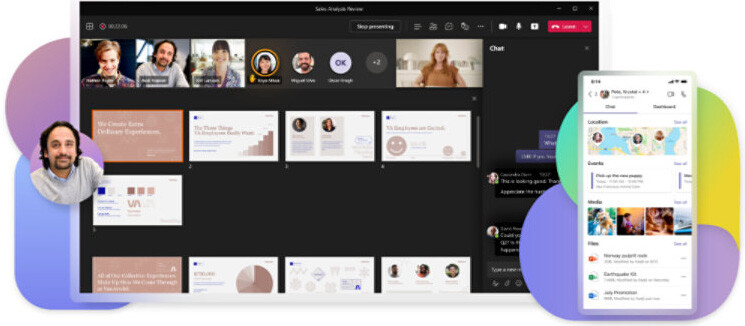
4. HR Software
HR software is the ideal tool to streamline the recruitment and hiring process and facilitate employee onboarding, training, and benefits. SnapHRM offers basic HR features that allow you to manage your team, such as an employee database, payroll management, attendance tracking, and days-off management. You can also create job postings and share them on dedicated platforms to reach more prospective candidates. SnapHRM is free for businesses with fewer than five employees, which makes it particularly relevant to small companies. Freshteam and Eddy are other examples of HR software suited for small businesses.
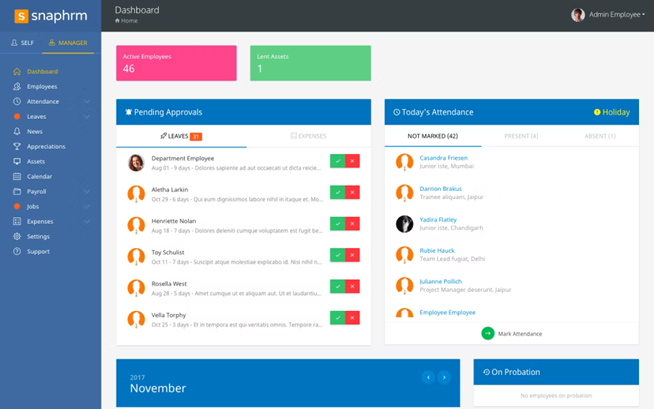
5. Workforce Management
Workforce management tools can handle your team’s workload planning, shift scheduling, and optimize your workforce based on historical data. Skedulo offers a clean, real-time interface to facilitate managing complex schedules. This workforce management software comes with a mobile application enabling your deskless employees to see task details and schedule updates. Planday and When I Work are other small business workforce management options to consider.
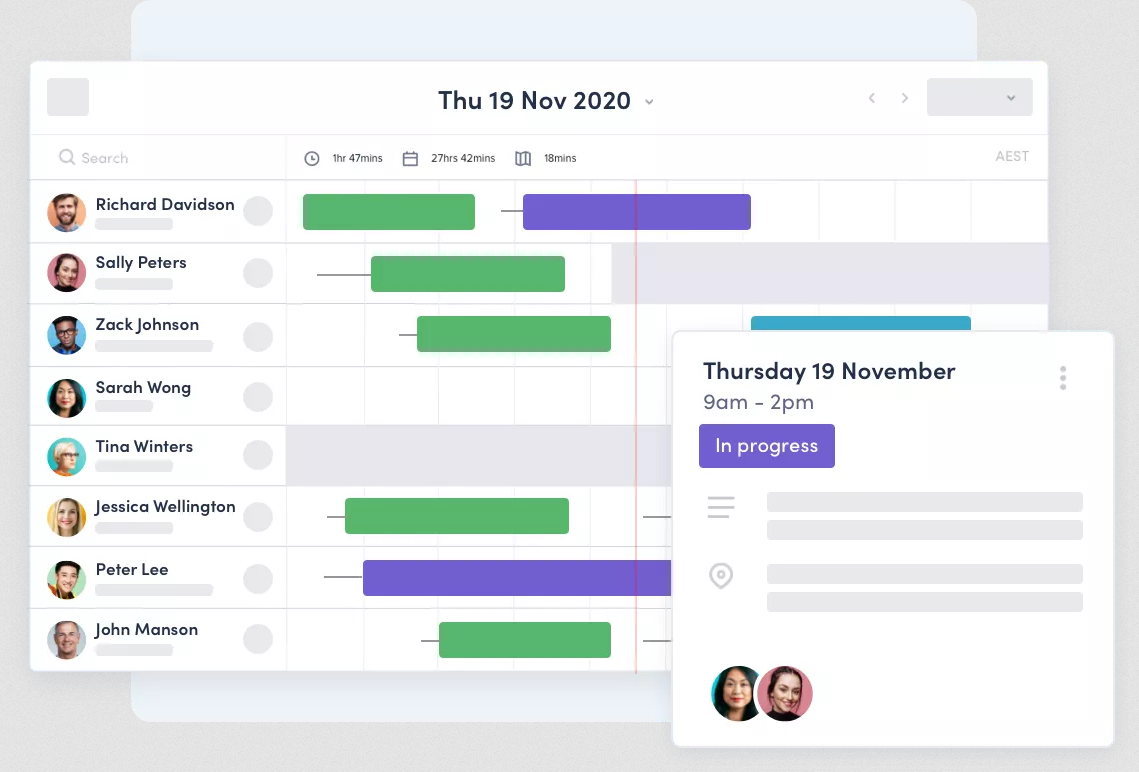
6. Work Reporting Tools
Reporting tools provide information on work done or time spent on a particular task by an employee. Toggl, for example, has a tracking feature and provides valuable insights into your workforce performance. Toggl provides a big picture view in one intuitive dashboard, improving transparency and accountability. ClicData and GROW offer reporting and analytics for small businesses.
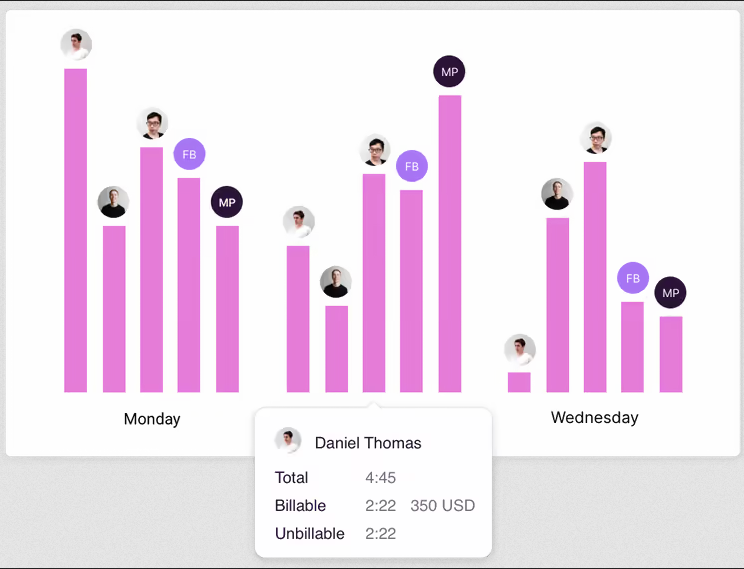
7. Cashflow Software
Cashflow management software helps businesses manage the flow of incoming and outgoing funds. CashAnalytics automates administrative tasks and optimizes cash and liquidity forecasting. This tool offers customizable reporting of real-time cash flows to meet businesses’ specific requirements. Pulse and Float are two other suitable alternatives for small business cashflow management.
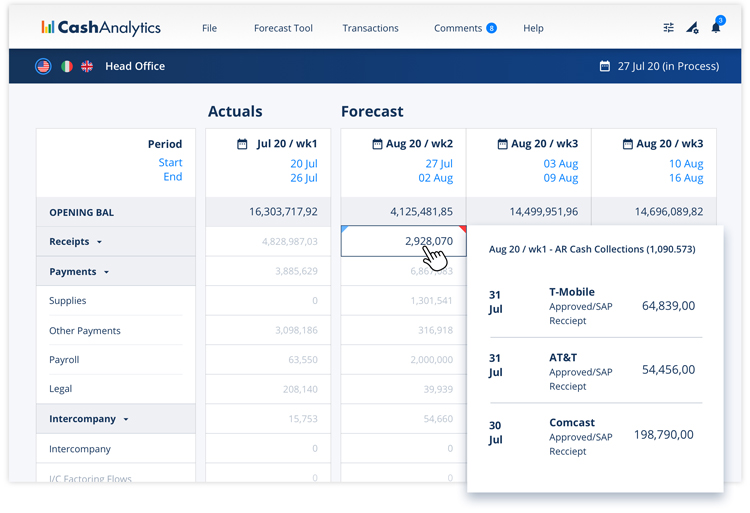
8. Invoicing Software
Invoicing tools produce billing for services and products and provide historical insights into your finances. Invoice Simple is a viable, easy-to-use option for small businesses. It’s designed to produce invoices based on estimates and add details like shipping details, due date, and applicable discounts. Invoice Simple comes with a mobile app that lets you handle your invoicing on the go. Other options you can consider are Aynax and Blinksale, which offer easy and customizable invoicing.
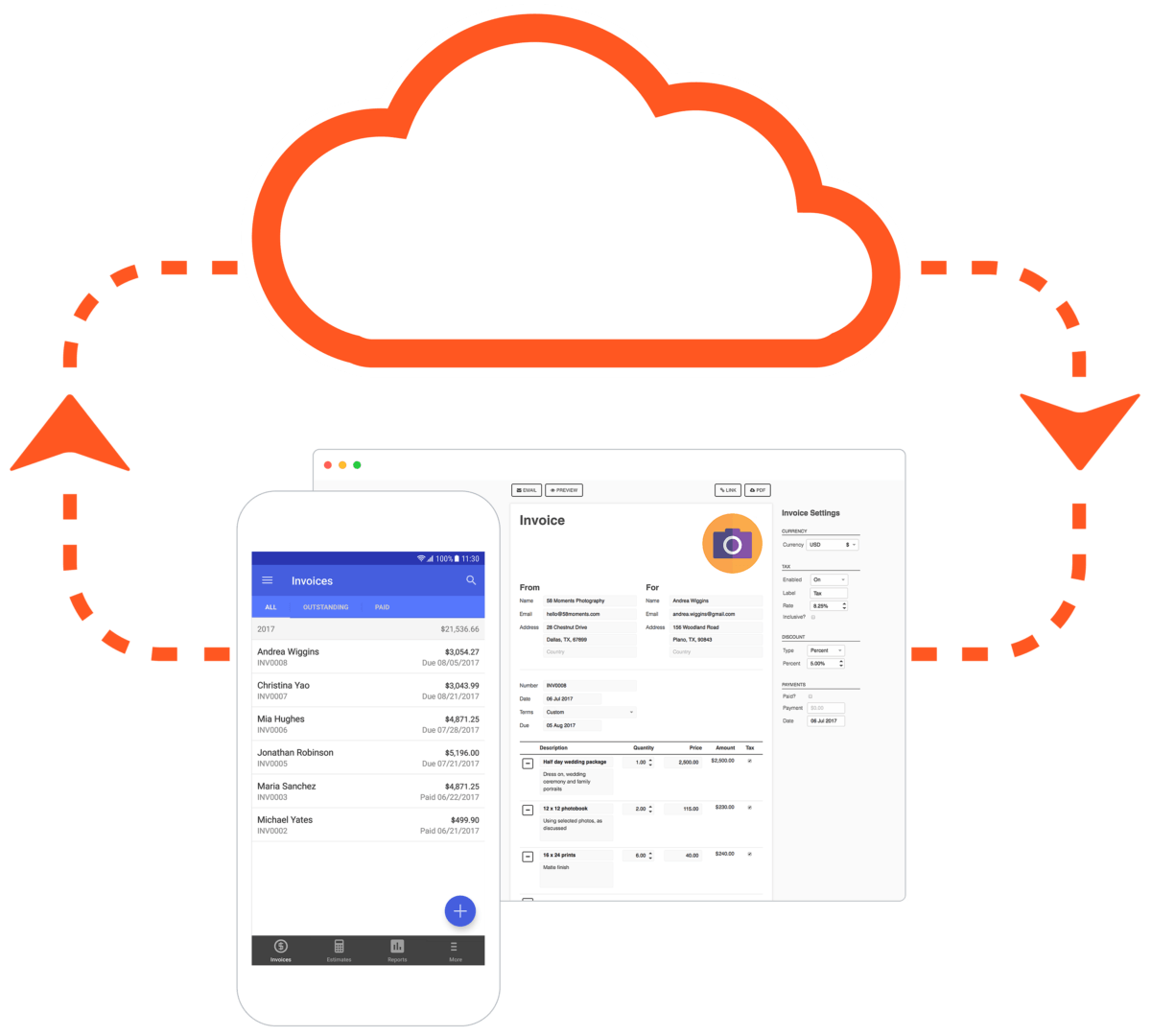
9. Document Management Tools
Document management tools securely store, manage, and track electronic documents. Google Drive is an excellent choice for small businesses, providing free cloud storage and streamlining file sharing and collaboration. It offers enhanced security and built-in protections against malware, spam, and ransomware. Dropbox and SmartVault are other attractive alternatives offering seamless cloud-based document storage and sharing.
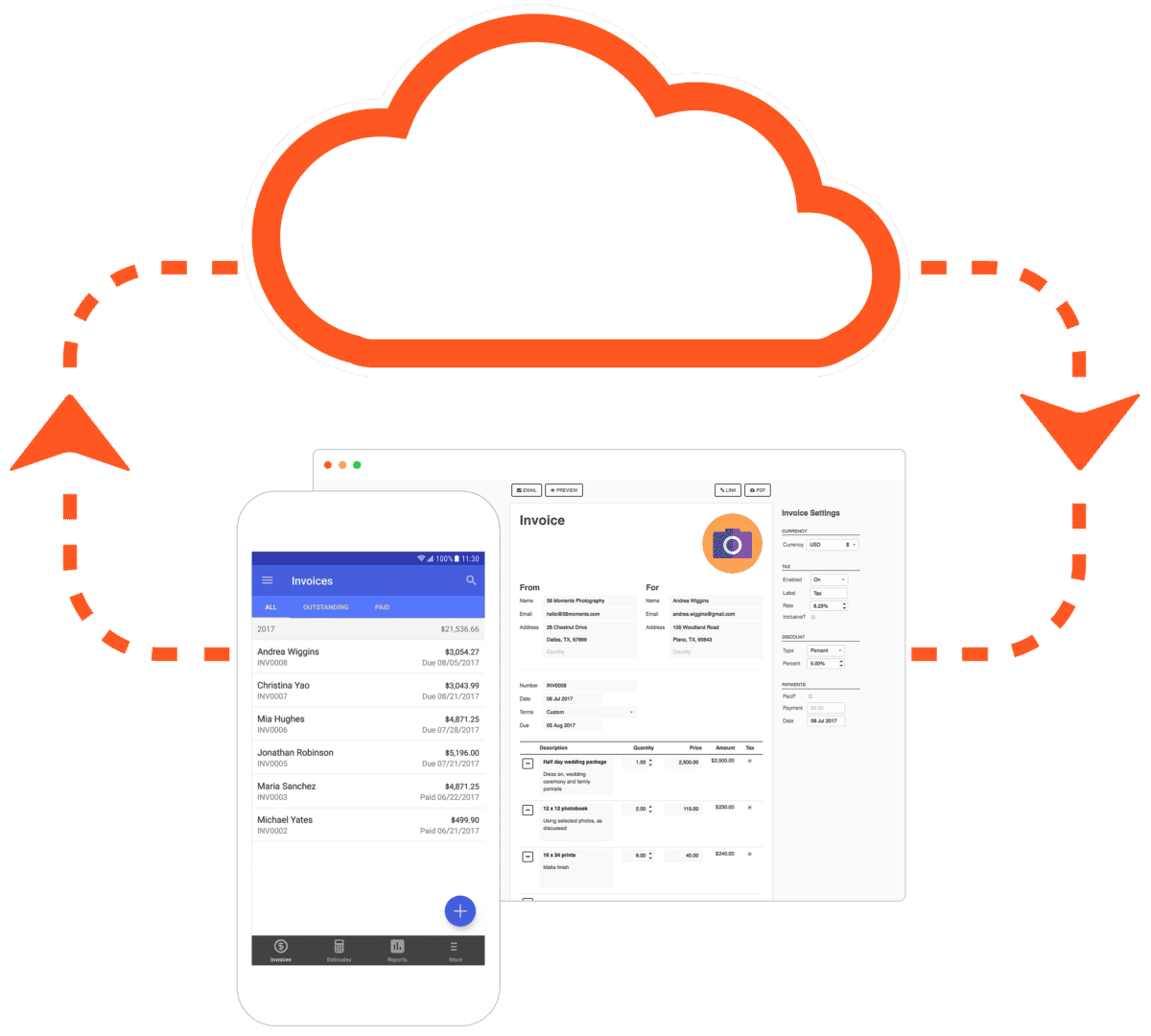
10. Calendar Software
Implementing calendar software can optimize your time. Appointy automates appointment booking, improves staff scheduling, and enhances client management. It’s best suited for industries like healthcare and wellness, retail, education, and IT. Appointy allows you to manage appointments, automatically send reminders, and accept bookings from social media and online prepayments. Alternatives you can also look at are Calendar and Teamup.
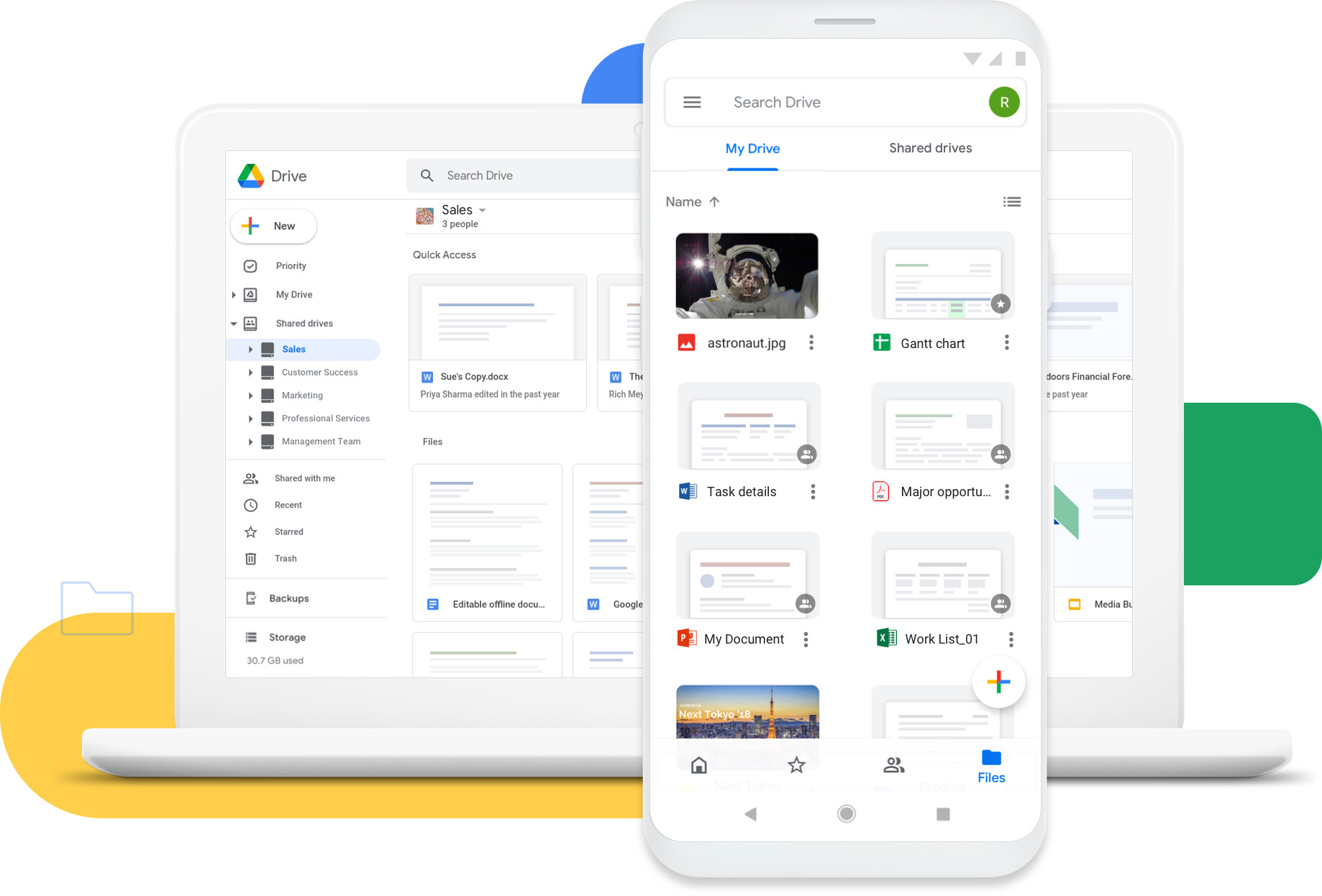
Selecting the best small business management solution
Should you choose a combination of individual tools or an all-in-one management platform? Let’s weigh the pros and cons of both options.
Utilizing a combination of individual tools
Using different tools for different needs allows for flexibility and customization. You can select the most effective options for each category. However, this approach may accumulate extra costs, involve compatibility and integration issues, and require your team to switch between different apps and interfaces.
Implementing an all-in-one business management platform
Alternatively, you can opt for an end-to-end platform that caters to all your business management functions. Caflou is an example of such a full-fledged system that combines various functionalities for managing processes and projects, workflows, cashflows, CRM, invoicing, communication, and more. Adopting such a unified platform saves money, increases productivity, offers scalability, streamlines operation, and enhances security.
Modern solutions come with integration capabilities to ensure seamless integration with other systems. Caflou, for instance, readily integrates with Google Calendar, Quickbooks, Xero, Zoho Books, and FreshBooks. It can also be used via an API or through services such as Integromat/Make and Zapier.
Implementing management tools will let you work smarter, not harder. By leveraging technology to automate repetitive tasks, you can invest your time and energy in coming up with fresh business ideas and propelling your company forward. Identify the best fit for your needs and let the tools handle the low-value jobs. It’s time you started working on your business instead of working in your business.
